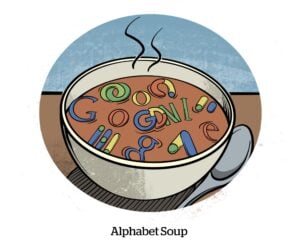Despite Google’s recent decision to continue support for third-party cookies on Chrome, the ongoing degradation of legacy identifiers and data signals within the digital marketing ecosystem continues at an impressive pace.
But it’s not the loss of these tracking and measurement approaches that deserves the attention. Rather, our industry should be putting the focus on what’s being gained as the digital marketing ecosystem transitions from traditional methods.
The losses that aren’t really losses
The pursuit of one-to-one addressability within the advertising ecosystem has long dominated our industry’s focus. But there have always been questions about how marketers and publishers reach the right audience while maintaining a focus on consumer privacy, data consent and strong user experiences.
In today’s privacy-first, mobile-first world, consumer preference and experience are everything.
That’s good news for consumers and advertisers. The “good old days” of advertising personalization were anything but. Third-party cookies, for example, have always been far more limited in their purview and accuracy than acknowledged.
While the premise for the cookie was good, we have placed an unreasonable expectation on cookies to remain persistent over time with scaled coverage across channels.
Even with Google continuing support for cookies on Chrome, new opt-in or opt-out mechanisms will continue to degrade the signal thrown off by these identifiers – identifiers that, incidentally, are no longer relevant on other browsers or media channels like mobile, CTV, DOOH and others.
True one-to-one addressability isn’t an ideal that our industry achieved and then lost. It’s one we’re still pursuing as our industry matures. The good news is, thanks to early industry findings and a strong tech foundation, we’re going to achieve this vision the right way, both from a consumer and an advertising standpoint.
The ad ecosystem of the future: mobile and AI
One of the key changes we’ll see during the digital ad industry’s maturation will be a reenvisioning of the kind of data that powers advertising addressability, including where and how this data is sourced. This process will be just that – a process. In time, however, this building-back journey will lead us to a more sustainable ad ecosystem.
The new data foundation that drives ad experiences will be built, above all, on optionality and consent. In the short term, advertisers and their partners will have to reestablish goals and KPIs through a new lens, as the slow but steady climb toward scaled consent – true consent, built from customer trust – gets underway. On the other side of this process, however, advertisers will find the personalization opportunity to be more robust – and practical – than ever before.
Because mobile sits at the center of the consumer’s universe, it deserves a place at the center of the marketing universe, as the industry recalibrates. Most people carry their device with them every moment of every day, which creates a tremendous opportunity to reach consumers with relevant messages and gather data signals to improve their user and advertising experience. The companies that have direct relationships with mobile users and can use their data in a consented way will be the foundational players of the ad ecosystem in the coming years.
As a starting place, app data gives brands the opportunity to achieve what every marketer is challenged with today: engaging consumers based on their demonstrated interests and behaviors based on the mobile apps they interact with every day. The quality and richness of such data means that target groups can be incredibly specific, as well as the tactics used to reach them.
Then there’s the transformative artificial intelligence (AI) and machine learning capabilities our industry is so fond of discussing. These tools will play a key role in solving for addressability through a balance of deterministic and probabilistic device maps as well as fostering a more privacy-centric environment.
Under a hybrid deterministic-probabilistic approach to device models, data providers can use deterministic data as a seed set and identify attributes shared by users with the highest likelihood to engage. These likeliest-to-engage users might be united by their use of a certain type or set of apps. Then, with this knowledge, the data provider can layer on probabilistic data to create additional scale based on machine learning. This process can bring scale to audiences, including highly coveted (and hard to reach) iOS device users.
An optimistic perspective
The ongoing wave of addressability changes within digital advertising has been lamented by some as a crumbling of the industry. But that couldn’t be further from the truth.
What we’re witnessing right now isn’t a crumbling; it’s a maturing of a multibillion-dollar space. When this process is complete, the landscape will look a lot different than it does today. But it will also be far more sustainable, particularly from an advertiser standpoint.
For more articles featuring Andrea Zapata, click here.














